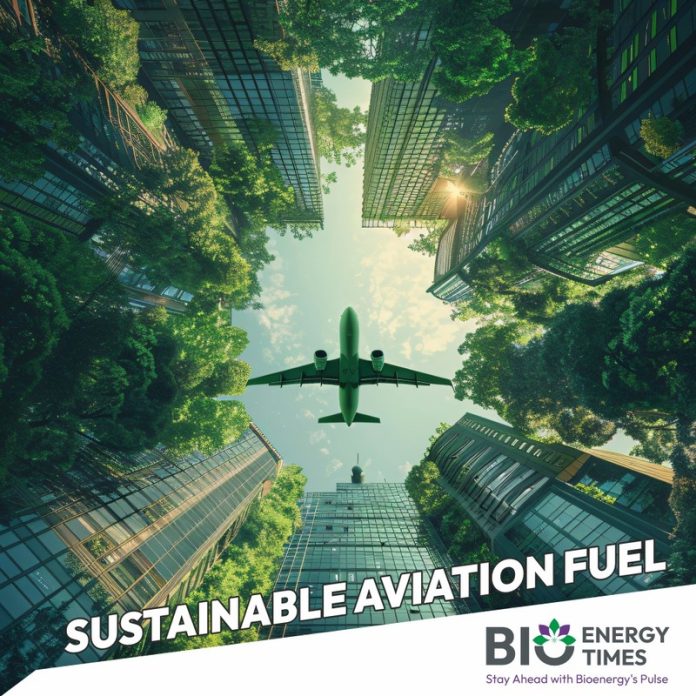Metafuels and PSI, developers of innovative technology for sustainable aviation fuel compatible with existing aircraft, have announced a significant funding grant of CHF 4.4 million from the Swiss Government’s Federal Office of Energy.
This funding will support the implementation and operation of a pilot facility utilizing Metafuels’ sustainable aviation fuel (e-SAF) technology, known as aerobrew. The project is being developed in collaboration with the Paul Scherrer Institute (PSI), Switzerland’s largest research institution for natural and engineering sciences. The facility, set to be the first of its kind in the country, will be located at the PSI campus in Villigen AG and will focus on demonstrating cutting-edge sustainable aviation fuel technology for large-scale commercial deployment.
Metafuels and PSI secured this grant through the Pilot & Demonstration (P&D) programme due to the highly innovative nature of their technology and its alignment with the key objectives of the Swiss Energy Strategy 2050. This funding comes at a critical time as the decarbonization of aviation poses one of the greatest technological challenges. Current alternatives, such as electrification and hydrogen, are years away from widespread adoption, especially for long-haul flights, due to logistical and design challenges. Sustainable aviation fuel, however, presents a viable drop-in replacement for conventional kerosene.
A Near- and Long-Term Solution for Aviation:
Metafuels is focused on producing sustainable aviation fuel using renewable electricity (e-SAF), a further environmentally refined approach that represents the leading long-term strategy for decarbonizing air travel. This method does not necessitate the re-engineering or replacement of aircraft or the redesign of the existing fueling infrastructure that supports both commercial and cargo airlines, making it an attractive and flexible option.
The aerobrew e-SAF can replace conventional kerosene regardless of the aircraft’s size, type, or whether it operates on short or long-haul routes. Unlike its competitors, aerobrew technology aims to minimize production costs through high efficiency and ultra-high yields of e-SAF. The technology is also expected to achieve high environmental performance, with a potential reduction of up to 90% in life cycle emissions, without impacting food and feed supply chains.
The rationale for this technology is compelling, as the aviation sector is responsible for over 2% of global CO2 emissions, totaling approximately 800 million tonnes. When accounting for other greenhouse gases and the complex climate factors resulting from the nature and altitude of emissions, the effective figure rises to around 3.5%.
Saurabh Kapoor, CEO and co-founder of Metafuels, states: “International business travel—powered by aviation—as well as the export of key Swiss goods represent a significant portion of the Swiss economy, and decarbonizing this sector is a key challenge. Two major airports in Switzerland, Zurich and Geneva, serve as international transport hubs connecting passengers between East and West and across Europe. Therefore, decarbonizing our aviation industry will also contribute to the broader mission of decarbonizing the global economy. We are proud to have secured this grant, which will help bring our technology to fruition and place us at the forefront of an increasingly innovative, startup-oriented Swiss economy.”
PSI: A Fusion of Basic Research and Engineering Expertise
Construction of the new pilot plant will take place in a three-story research facility at the Paul Scherrer Institute. This plant will be part of the Energy System Integration (ESI) Platform, a testing facility designed to evaluate promising approaches to energy conversion processes for both research and industry, encompassing their complex interrelations.
“Thanks to our expertise in both fundamental research and engineering sciences, along with years of experience in developing and operating large-scale systems, our partnership with Metafuels will accelerate the deployment of this novel technology for decarbonizing the aviation industry,” says Marco Ranocchiari, head of the ESI platform at PSI.
The pilot plant for converting methanol into e-SAF will be the first of its kind in Switzerland, aiming to demonstrate the aerobrew technology, with plans to scale up for large-scale commercial use.
Scalability, Efficiency, and Market Potential:
The aerobrew technology enables a seamless transition from fossil-based kerosene, utilizing a proprietary process for converting green methanol to e-SAF. Green methanol is produced from green hydrogen (H₂) and sustainably sourced carbon dioxide. Green hydrogen can be generated through water electrolysis powered by renewable electricity, while CO₂ can be captured from biogenic sources, including waste and residues in the short term, and through direct air capture in the long term.
Metafuels, in collaboration with PSI, has obtained this grant to address the major challenges facing e-SAF—scalability, efficiency, and cost. Sustainable Aviation Fuel (SAF)—a general term for aircraft fuels derived from sustainable carbon sources—is not a new concept. However, the industry has yet to produce an affordable SAF that can be efficiently produced at a commercial scale and meaningfully reduce airline net emissions. This is the core challenge that the two partners aim to resolve together. Their approach involves sustainably produced kerosene derived from a two-step process that converts green methanol to kerosene.
Crucially, unlike many competitors, Metafuels focuses on technology that prioritizes jet fuel as its primary output. This highly selective approach, which targets both high yield and high energy efficiency, is expected to lead to industry-leading production costs for e-SAF.
To read more about Sustainable Aviation Fuel Industry News, continue reading BioEnergyTimes.com















